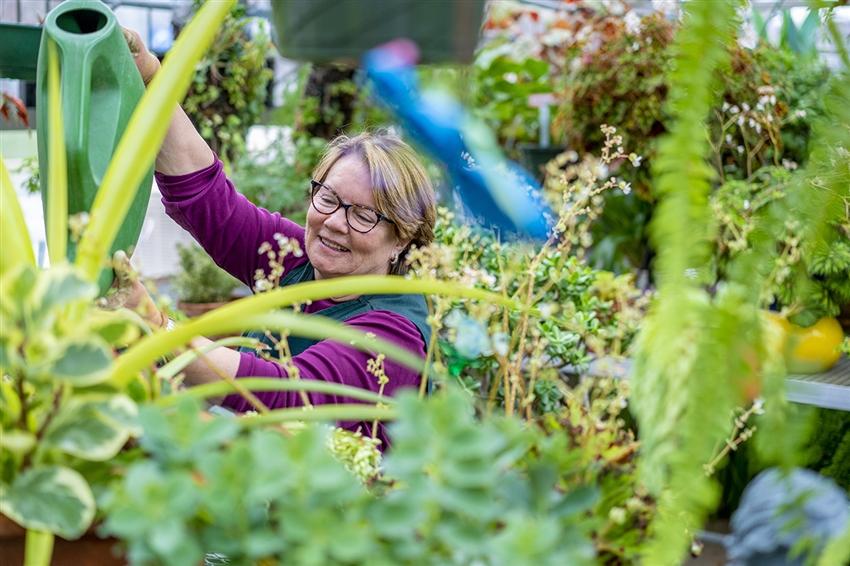Concussion Rehab
One of the first acute rehabilitation hospitals in the country to provide treatment for brain injury, we’re recognized as a leader in the field of concussion treatment and recovery.
Getting well doesn’t just happen from a hospital bed or inside a gym. Sometimes, letting patients get back to nature is the key to physical and psychological recovery. At Bryn Mawr Rehab Hospital in Malvern, Pennsylvania, just outside of Philadelphia, we offer horticultural therapy, an innovative treatment that uses plants and plant-related activities to assist people with disabilities or traumatic injuries who are recovering at Bryn Mawr Rehab. Patients benefit from working with a horticulture therapist who takes a creative approach to rehabilitation, providing a change of pace and scenery to aid in recovery.

The Sydney Thayer III Horticultural Center at Bryn Mawr Rehab Hospital is a state-of-the-art facility with cathedral ceilings, skylights and a large greenhouse that radiates peace and beauty. Working with a registered horticulture therapist you’ll enjoy activities like:
Your therapy team will also include physical, occupational, recreational and speech therapists who will help you work toward your therapy goals while enjoying practical activities in a group setting or individually. Working with plants, you can improve mobility, coordination, balance, endurance, memory and socialization skills in a natural, therapeutic setting.
The horticulture therapy program benefits a wide range of people, from those managing a lifelong disability to those recovering from a serious injury. People of all ages can easily participate in greenhouse activities, naturally improving physical and social skills. Our specially designed greenhouse includes extra wide aisles and non-skid floors to accommodate those in wheelchairs. In horticultural therapy, patients share a meaningful activity with others in an effective, creative and flexible treatment platform.
One of the first acute rehabilitation hospitals in the country to provide treatment for brain injury, we’re recognized as a leader in the field of concussion treatment and recovery.
For people with work-related injuries and chronic pain, we offer a range of therapies through RehabWorks, a worker rehabilitation program that brings together a multidisciplinary team to support people who have lost functional capacity due to a work-related illness or injury.
As part of our specialized treatment for each athlete, sports injury rehab includes use of therapies and training exercises that not only mimic the demands of your sport but also address the unique conditions of the specific position you play within your sport.
Inpatient and outpatient stroke rehabilitation treatment and complex stroke treatment. We develop a unique stroke rehab therapy plan that help patients immediately build on their strengths and learn to compensate for limitations.
Bryn Mawr Rehab Hospital offers an extensive, progressive neurologic outpatient rehabilitation program for patients who may be able to function on their own, but wish to function even better.
Disability and assistive technology combines technological invention with modern medicine, helping people with physical and cognitive disabilities acquire and use devices that help improve mobility and independence.
Bryn Mawr Rehab Hospital was one of the first facilities in the country to offer traumatic and nontraumatic inpatient brain injury rehab as well as outpatient brain injury rehab and has remained one of the best rehabilitation hospitals for brain injury treatment in the Philadelphia region for more than 30 years.
Each inpatient and outpatient physical therapy rehab is individually designed and administered by a licensed physical therapist who consistently guides you from that first visit all the way through recovery.